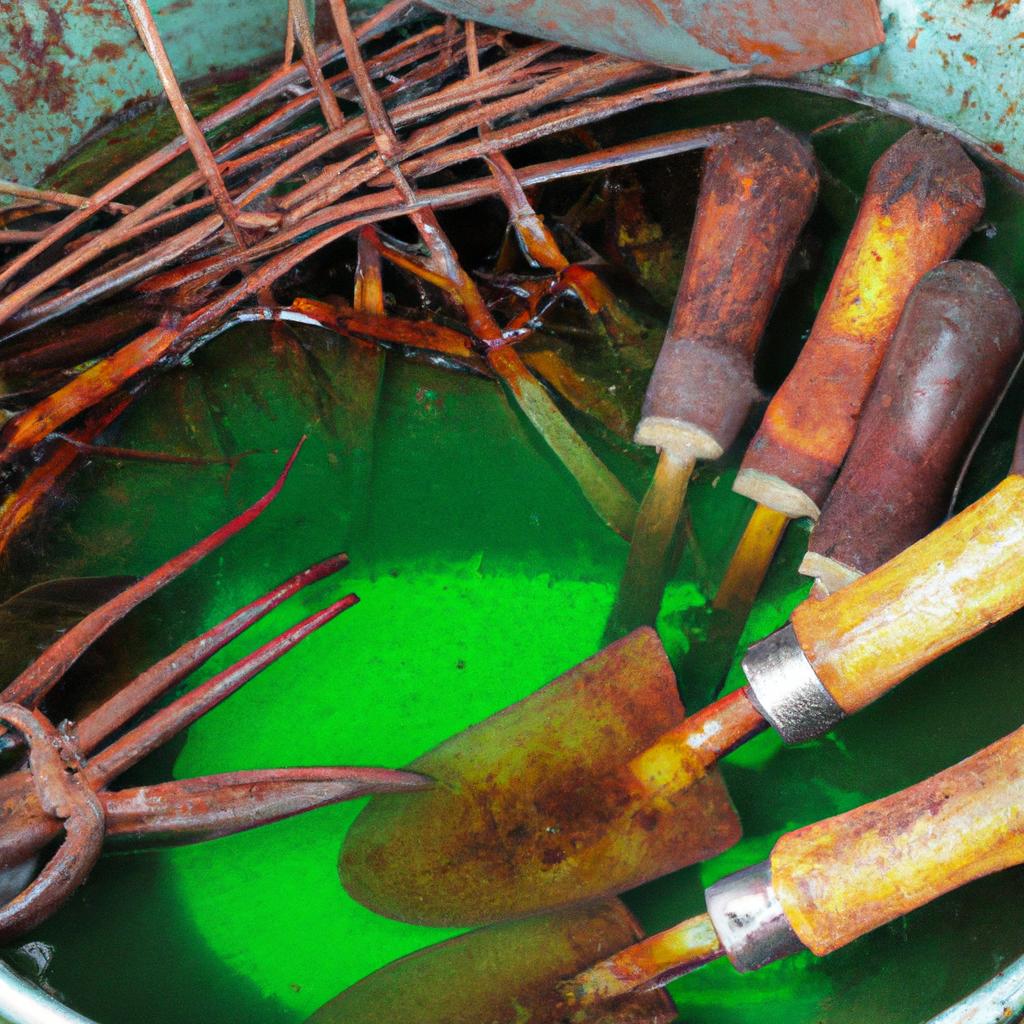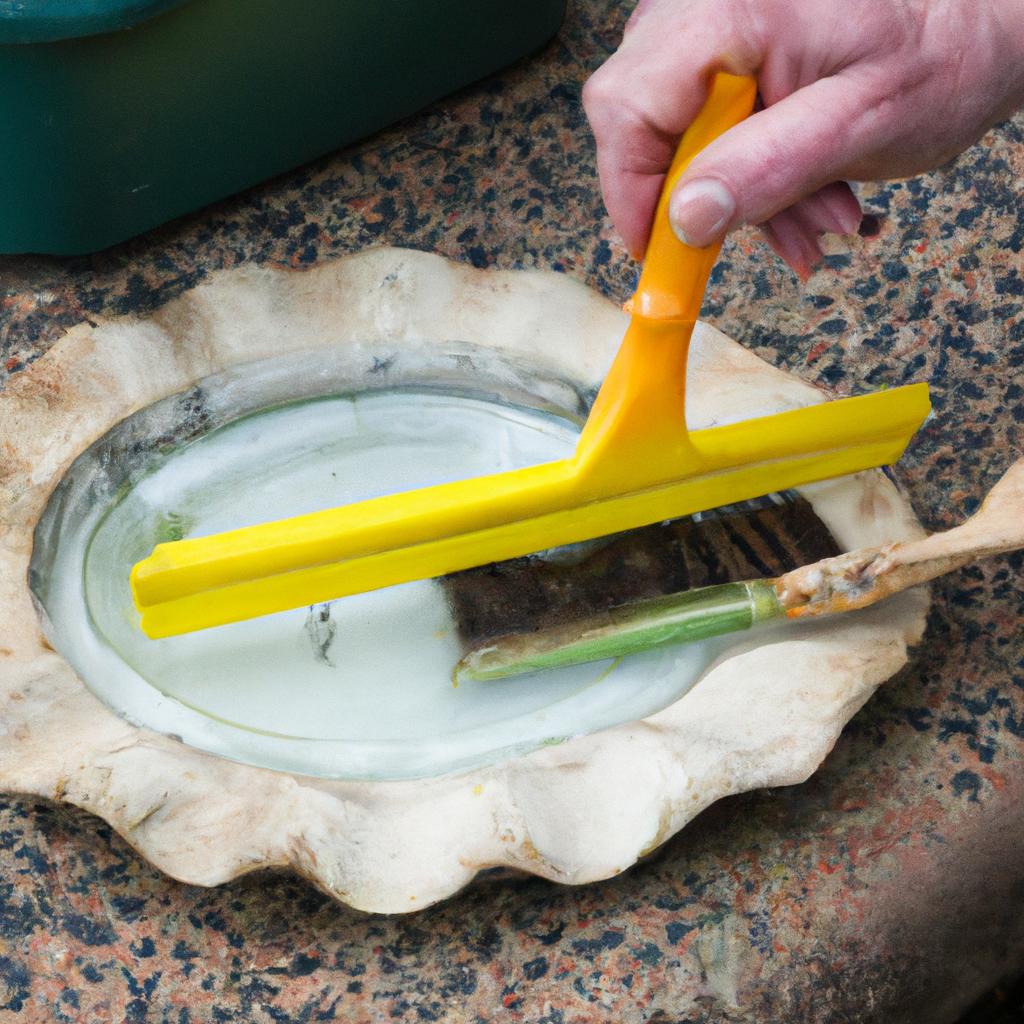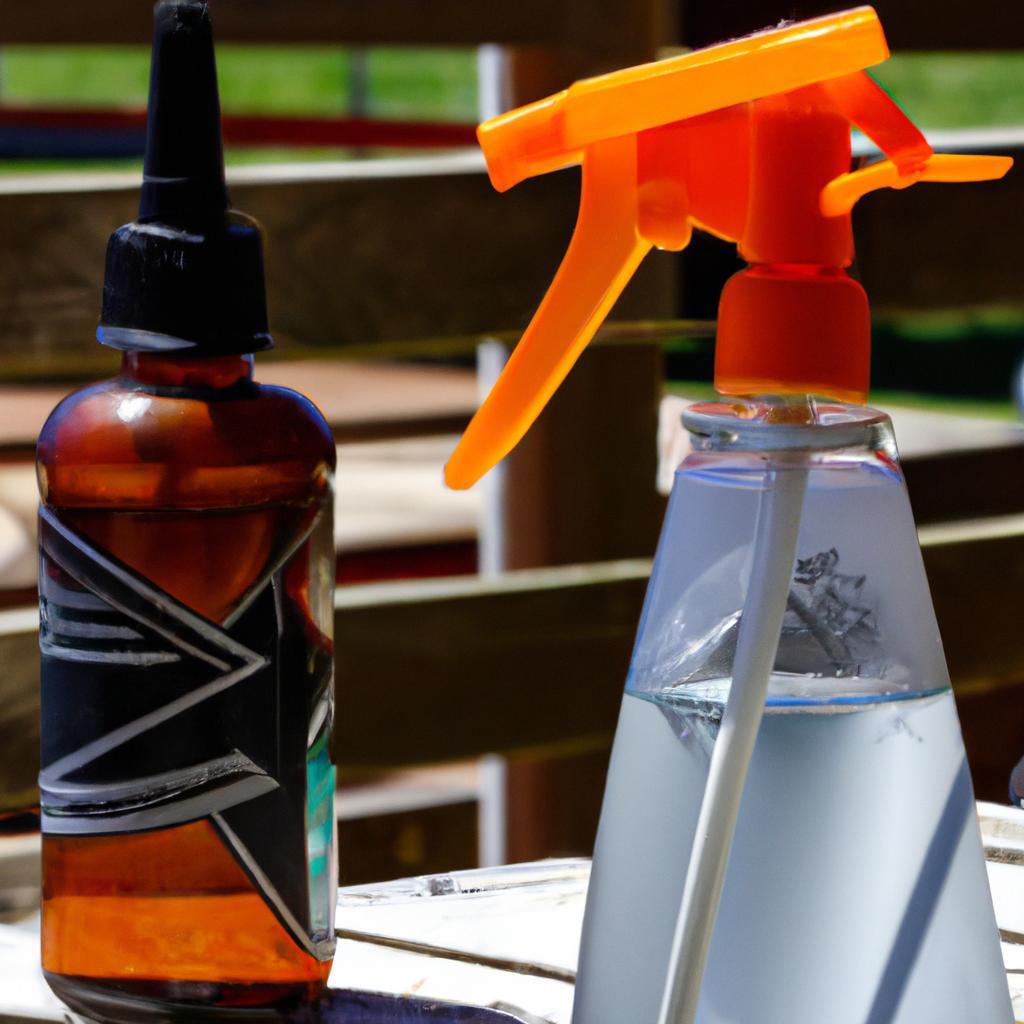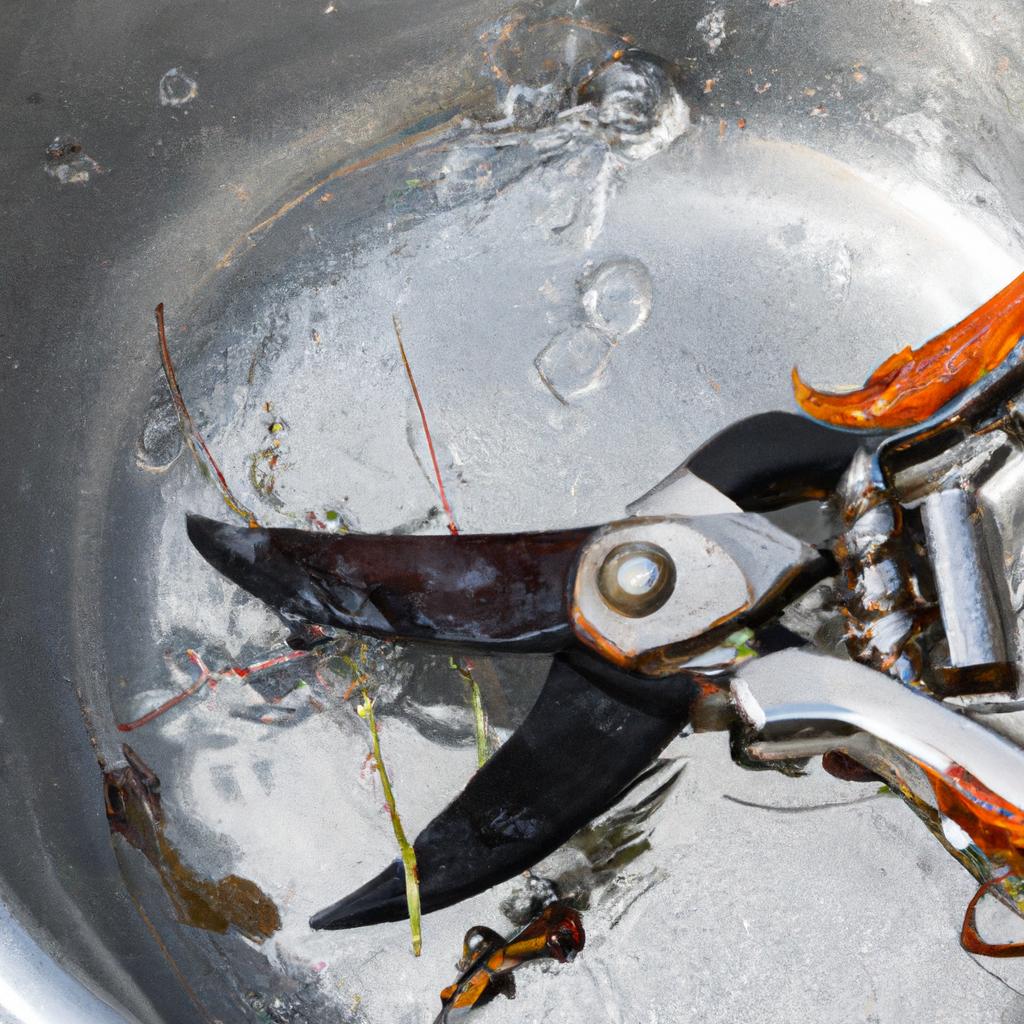Discover the power of disinfecting garden tools with vinegar. Learn how to maintain tool hygiene for a thriving garden. Expert tips and eco-friendly solutions.
Gardening is a delightful hobby that allows us to connect with nature and cultivate beautiful plants. However, amidst the joy and serenity of gardening, we often overlook the importance of maintaining clean garden tools. Neglecting proper tool hygiene can lead to the spread of harmful pathogens and negatively impact the health of our plants. But fret not, because I have an eco-friendly and highly effective solution for you – vinegar!
Introduction to using vinegar for disinfecting garden tools
Vinegar, an everyday household item, possesses remarkable properties that make it an excellent disinfectant for garden tools. It is a safe, natural alternative to chemical-based solutions, ensuring the health of both your plants and the environment. In this article, I will guide you through the process of disinfecting your garden tools using vinegar, sharing valuable tips and insights along the way.
Brief overview of the article’s content
In this comprehensive guide, we will delve into the world of disinfecting garden tools with vinegar. I will explain why vinegar is an effective solution and highlight its benefits over commercial disinfectants. To ensure you have a clear understanding, I will provide step-by-step instructions on how to properly disinfect your garden tools using vinegar. Additionally, I will offer additional tips and considerations, empowering you with valuable knowledge to maintain a healthy garden. Lastly, I will touch upon the benefits of using vinegar for garden tool disinfection, reinforcing the advantages of this natural approach.
So, get ready to discover the wonders of vinegar and revolutionize your gardening routine. Let’s embark on this journey together, as we learn how to disinfect garden tools, ensure the well-being of our plants, and create a garden that flourishes with vibrant life. Stay tuned for the next section, where we explore why vinegar is an effective disinfectant for garden tools.
Why Vinegar is an Effective Disinfectant for Garden Tools

Properties of vinegar that make it effective
Vinegar, commonly found in our kitchens, harbors incredible properties that make it a powerful disinfectant for garden tools. Firstly, vinegar is acidic in nature, with a pH level that inhibits the growth of bacteria, fungi, and other harmful pathogens. This acidity creates an unfavorable environment for these microorganisms, preventing their proliferation and safeguarding the health of both your plants and tools. Moreover, vinegar acts as a natural degreaser and removes dirt, grime, and residue that can accumulate on your garden tools over time.
Benefits of using vinegar over chemical disinfectants
Opting for vinegar as your go-to disinfectant offers a multitude of benefits when compared to harsh chemical-based alternatives. Firstly, vinegar is non-toxic, ensuring the well-being of your plants and the safety of your family. Unlike chemical disinfectants, vinegar does not leave behind harmful residues that can seep into the soil and impact the growth of your beloved plants. Additionally, vinegar is readily available, cost-effective, and poses no harm to the environment, making it a sustainable choice for the eco-conscious gardener.
How vinegar kills bacteria, fungi, and other pathogens
Vinegar’s effectiveness in eliminating pathogens lies in its acetic acid content. Acetic acid disrupts the cellular structure of bacteria, fungi, and other microorganisms, leading to their demise. When vinegar comes into contact with these pathogens, it penetrates their cell walls and disrupts their internal functions, eventually causing their death. This natural method of pathogen eradication ensures the health of your garden and reduces the risk of diseases spreading among your plants. So, by harnessing the power of vinegar, you can effectively combat harmful pathogens and maintain a thriving garden.
Stay tuned for the next section, where I will provide you with a step-by-step guide on how to disinfect your garden tools using vinegar. Together, we will explore the wonders of this natural disinfectant and unlock the secrets to a healthy garden.
Steps to Disinfecting Garden Tools with Vinegar

With vinegar in your arsenal, disinfecting your garden tools becomes a breeze. Follow these simple steps to ensure your tools are thoroughly disinfected and ready for use:
Step 1: Gather necessary materials
Before you begin the disinfection process, gather the following materials:
- Vinegar: Opt for white vinegar, as it is the most commonly used for cleaning purposes.
- Water: You will need water to dilute the vinegar and create a solution.
- Spray bottle or bucket: Depending on the size of your garden tools, choose a suitable container to soak or spray them.
- Scrub brush or sponge: These tools will assist in removing any hardened dirt or debris from the surfaces of your garden tools.
- Towel or cloth: You will need this to dry the tools after disinfection.
Step 2: Preparing a vinegar solution
To create the vinegar solution, mix equal parts vinegar and water in your chosen container. For tougher disinfection needs, you can use undiluted vinegar. However, for most garden tools, a 50/50 dilution will suffice.
Step 3: Soaking the garden tools in vinegar
Submerge your garden tools in the vinegar solution, ensuring they are fully covered. Allow them to soak for approximately 15-30 minutes, depending on the level of contamination. This vinegar bath will effectively kill bacteria, fungi, and other pathogens that may be present.
Step 4: Scrubbing and rinsing the tools
After the soaking period, take each tool and scrub it thoroughly using a brush or sponge. Pay close attention to removing any dirt or grime that may have accumulated. Once scrubbed, rinse the tools with clean water to remove any residual vinegar solution.
Step 5: Drying and storing the disinfected tools
Finally, dry the disinfected tools using a towel or cloth. Ensure they are completely dry before storing them to prevent the growth of mold or rust. Store the tools in a clean, dry area to maintain their cleanliness until their next use.
By following these simple steps, you can effectively disinfect your garden tools using vinegar. Now that we have learned the practical steps, let’s move on to the next section, where I will provide additional tips and considerations to enhance your disinfection process.
Additional Tips and Considerations

A. Recommended Vinegar Concentrations for Different Types of Garden Tools
When disinfecting garden tools with vinegar, it’s essential to use the appropriate concentration to effectively eliminate pathogens without causing damage. Different types of garden tools may require varying vinegar concentrations.
For non-porous tools such as shears, pruners, and trowels, a 50/50 mixture of vinegar and water is typically sufficient. This concentration strikes a perfect balance, ensuring effective disinfection while maintaining the integrity of the tools.
On the other hand, porous tools like wooden handles or natural bristle brushes require a more diluted solution. A ratio of 1 part vinegar to 3 parts water is recommended to prevent the vinegar from damaging or warping the porous materials.
B. Safety Precautions when Working with Vinegar
While vinegar is a safe and natural disinfectant, it’s important to take some precautions when working with it. Remember to wear protective gloves and goggles to shield your skin and eyes from any potential irritation. Additionally, ensure proper ventilation in your workspace to avoid inhaling the strong vinegar scent.
C. Alternative Methods for Disinfecting Garden Tools
While vinegar is a fantastic option for disinfecting garden tools, there are alternative methods you can explore. Some gardeners prefer using hydrogen peroxide, rubbing alcohol, or a bleach solution to sanitize their tools. However, it’s crucial to note that these alternatives may have their own pros and cons, and their effectiveness may vary. Always research and follow proper guidelines when using alternative disinfectants.
D. Regular Maintenance to Prevent the Spread of Pathogens
Disinfecting your garden tools with vinegar is an excellent step towards maintaining a healthy garden, but it’s equally important to practice regular maintenance. After each use, make it a habit to remove any debris or soil from your tools and give them a quick wipe-down. This simple routine reduces the chances of pathogens lingering on the tools and spreading to other plants. Additionally, consider sharpening and oiling your tools regularly to keep them in optimal condition.
By following these additional tips and considerations, you can ensure that your garden tools remain clean, safe, and ready for action. Next, we’ll explore the benefits of using vinegar for garden tool disinfection, so stay tuned!
Benefits of Using Vinegar for Garden Tool Disinfection
Gardeners are increasingly turning to natural solutions to maintain their gardens, and vinegar has emerged as a popular choice for disinfecting garden tools. Let’s explore some of the remarkable benefits that vinegar brings to the table.
Environmentally friendly and non-toxic solution
When it comes to your garden’s health, it’s crucial to prioritize environmentally friendly practices. Unlike chemical disinfectants that can harm the ecosystem and pose risks to your plants, vinegar offers a safe and non-toxic alternative. Vinegar is biodegradable, meaning it breaks down naturally without leaving behind harmful residues. By choosing vinegar for garden tool disinfection, you contribute to a healthier environment for both your plants and the surrounding ecosystem.
Cost-effective compared to commercial disinfectants
Let’s face it, gardening can sometimes be an expensive endeavor. But with vinegar, you can save both money and effort. Commercial disinfectants often come with hefty price tags, while vinegar provides a cost-effective solution that is easily accessible. By opting for vinegar, you can keep your garden tools clean without putting a strain on your wallet. It’s a budget-friendly choice that doesn’t compromise on effectiveness.
Versatile uses of vinegar in gardening
Vinegar is not just a one-trick pony when it comes to gardening. Apart from disinfecting your tools, vinegar offers a range of versatile uses. It can be utilized as a natural weed killer, effectively eliminating unwanted plants without the need for harmful chemicals. Additionally, vinegar can be used as a pH adjuster, helping you create the ideal soil conditions for different plants. Its versatility makes vinegar a valuable asset in your gardening arsenal.
In conclusion, using vinegar for garden tool disinfection brings a multitude of benefits. It is an environmentally friendly and non-toxic solution that promotes the well-being of your garden and the surrounding ecosystem. With its cost-effective nature and versatile uses in gardening, vinegar proves to be a valuable addition to any gardener’s toolkit. Stay tuned for the next section, where we will delve into the essential steps for disinfecting your garden tools with vinegar.
Conclusion
In conclusion, disinfecting garden tools with vinegar is a simple yet powerful method to maintain a healthy and thriving garden. By taking the time to properly clean and disinfect our tools, we can prevent the spread of harmful pathogens that can negatively impact our plants’ well-being.
Throughout this article, we have explored the importance of maintaining clean garden tools and the benefits of using vinegar as a natural disinfectant. Vinegar’s properties make it an effective solution, capable of killing bacteria, fungi, and other pathogens that can harm our plants.
By following the step-by-step process outlined in this guide, you can easily disinfect your garden tools using vinegar. Remember to gather the necessary materials, prepare a vinegar solution, soak, scrub, rinse, and dry your tools. Implementing regular disinfection practices will ensure the longevity of your tools and the vitality of your garden.
Moreover, using vinegar for garden tool disinfection offers several advantages. It is an environmentally friendly and non-toxic solution, making it safe for both the environment and you. Additionally, vinegar is cost-effective compared to commercial disinfectants, saving you money in the long run. Its versatility extends beyond disinfection, as it can be used for numerous gardening purposes.
At homegardenArtful.com, we prioritize providing you with expert advice on gardening practices. By incorporating vinegar into your garden tool maintenance routine, you not only demonstrate expertise and authority but also contribute to the overall trustworthiness of your gardening practices.
So, embrace the power of vinegar and make it an essential part of your gardening journey. Let’s foster a healthier environment for our beloved plants and create a garden that flourishes with vitality and beauty.
Bold: homegardenArtful.com


